Life in Canada’s Communities: Reactions to the Federal Government’s Agenda
March 1, 2016
Abacus recently completed an in-depth nationwide LIFE IN CANADA’S COMMUNITIES study for the Federation of Canadian Municipalities. This release is the third in a series based on this study.
REACTION TO FEDERAL GOVERNMENT PRIORITIES
We asked people to react to recently announced federal priorities that relate to cities and communities. All six items we tested found majority support (ranging from 58% to 74%) and very little opposition (no more than 10% on any item).
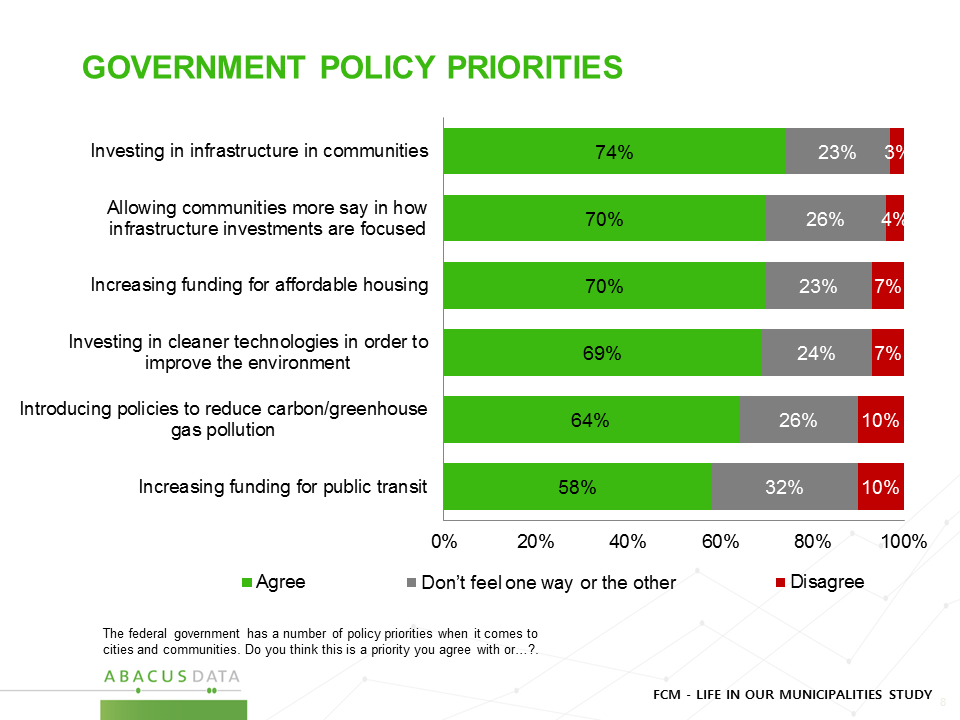
There is broad support for the federal government investing in infrastructure, clean technology, public transit, and affordable housing. There is broad agreement with the idea that municipalities should have more say in the choices of what infrastructure to prioritize. And, 64% agree while only 10% disagree with the idea of putting a priority on reducing greenhouse gas emissions.
In an era when some issues show sharp partisan divisions it is worth noting that the tendency across all major parties is to support rather than oppose these priorities.
Conservative voters are less enthusiastic about investments in clean tech, affordable housing and public transit, but are still more supportive than opposed.
When it comes to reducing carbon, more Conservatives agree (40%) than disagree (28%) with putting a priority on this. Worth noting, in Alberta, 58% agree, and 17% disagree.
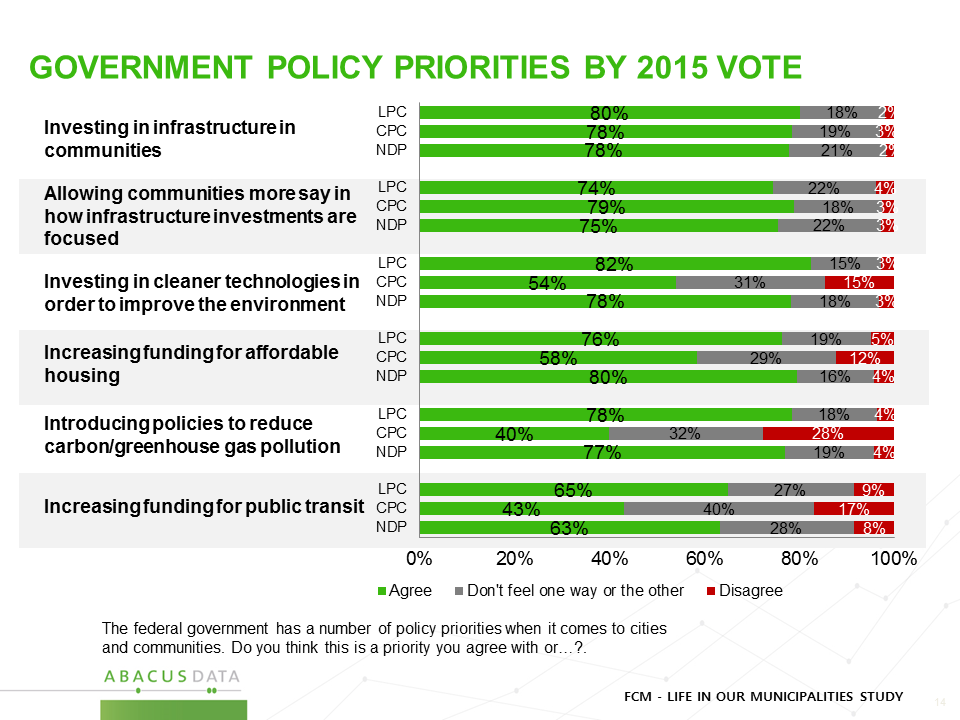
In fact, support for these priorities are fairly consistent across a broad range of groups in Canada. On a handful of items there is more support among those on the left and centre of the spectrum than on the right, but these are more differences of degree than of direction.
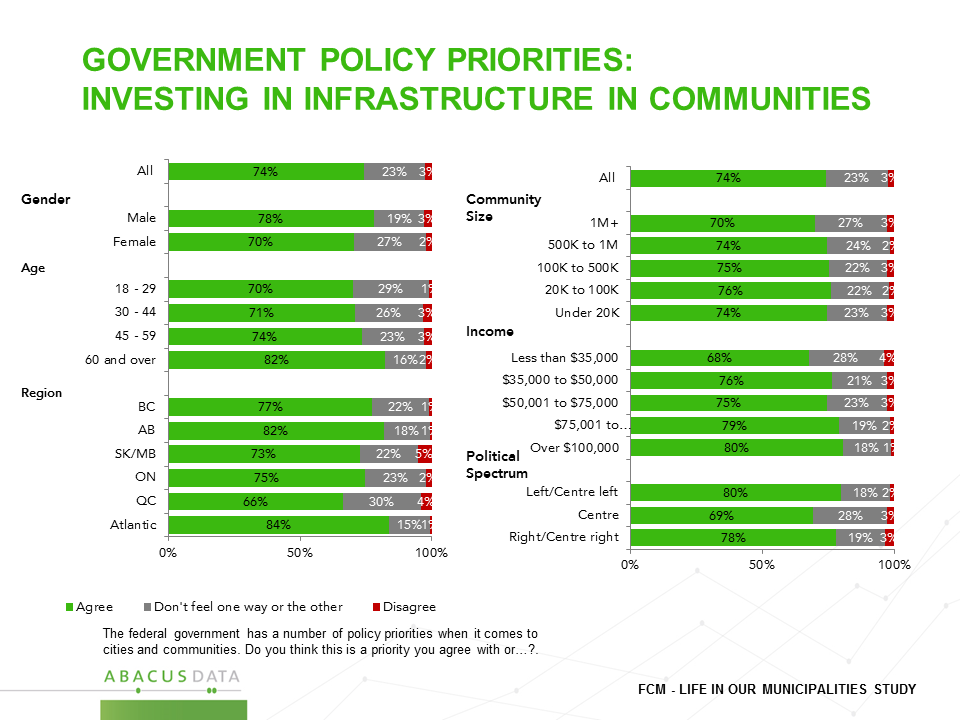
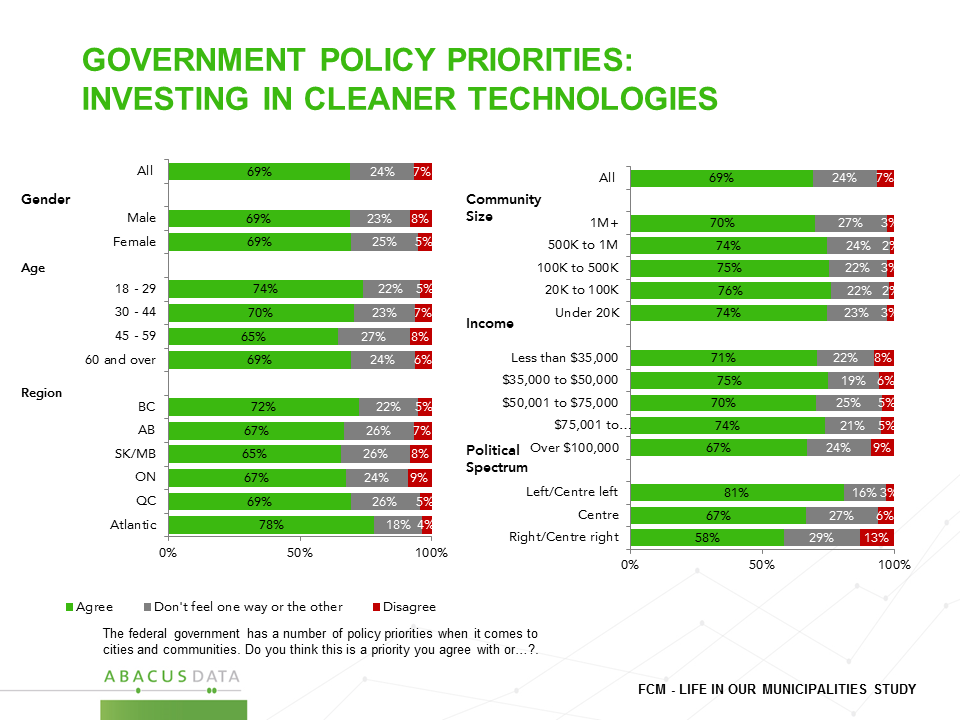
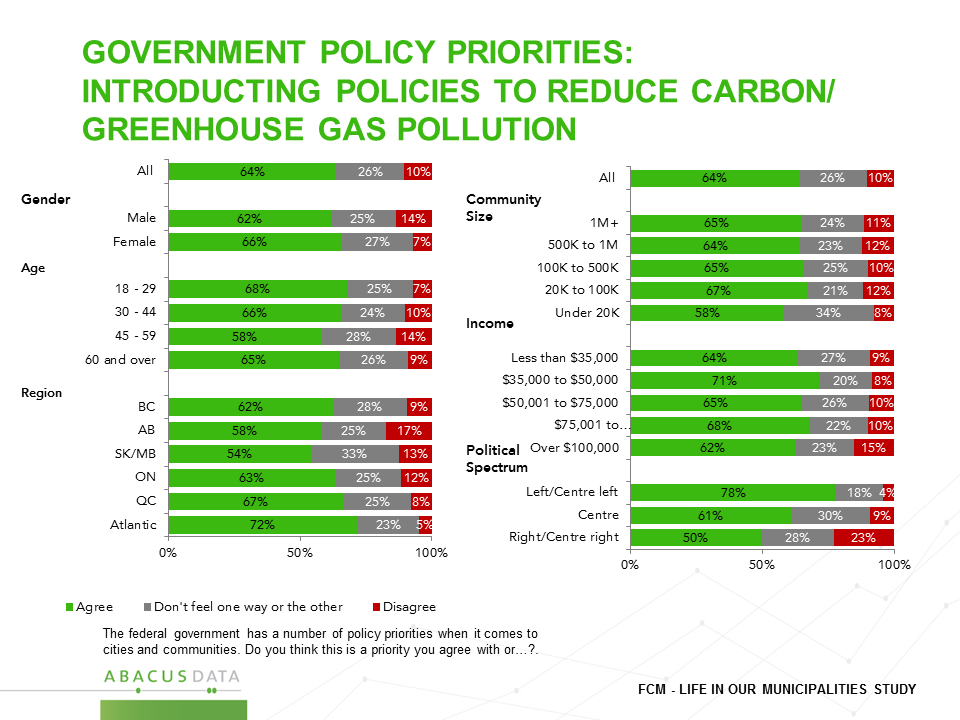
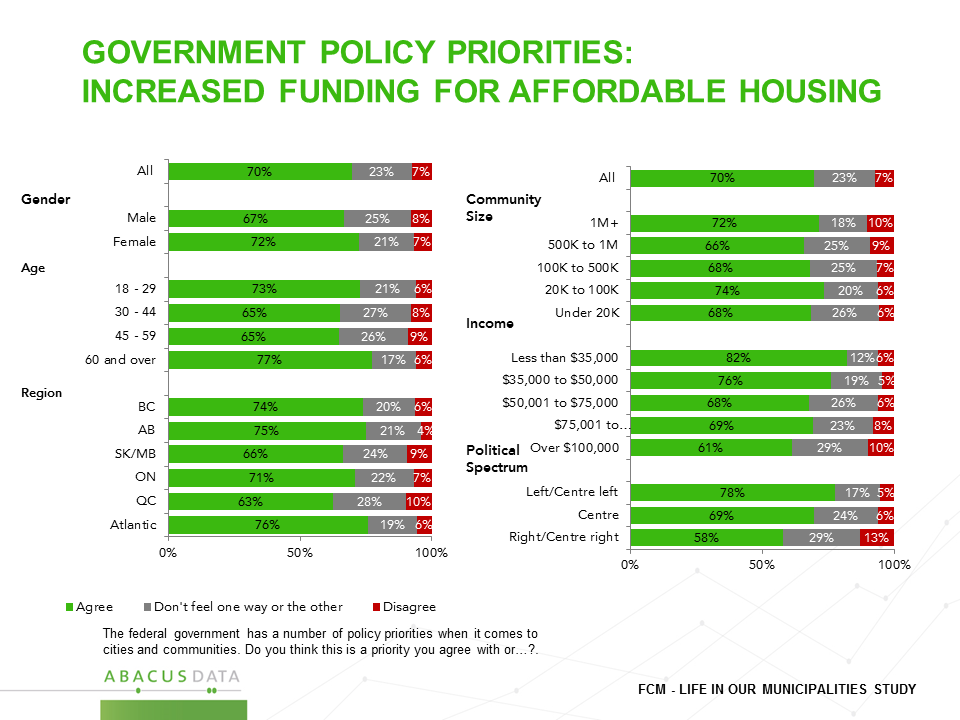
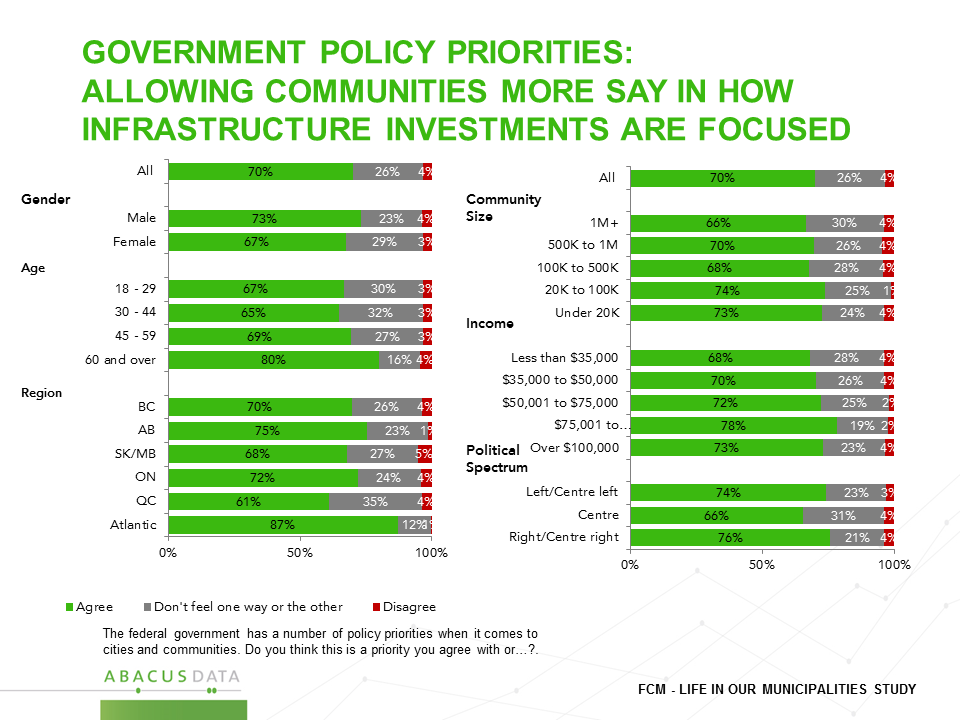
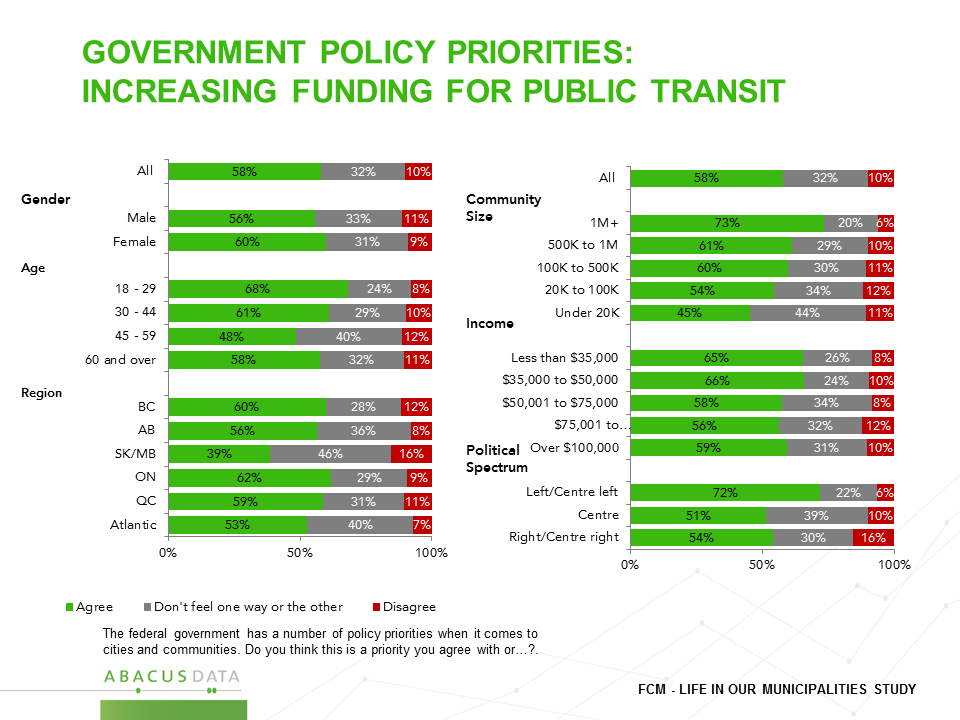
THE UPSHOT
Most Canadians agree with the priorities outlined by the federal government when it comes to how it deals with municipalities.
There is very little resistance, in any part of the country, or on any part of the political spectrum to investing in infrastructure, affordable housing, clean technologies, or public transit. These priorities do not divide people along gender, generational or rural and urban lines either.
Conservative Party supporters tend to be somewhat less enthusiastic about investments in transit and affordable housing but still agree more than disagree with these priorities.
Perhaps the most striking aspect of these findings has to do with the question of carbon reduction initiatives. While some may make the case that Albertans and Conservatives are broadly opposed to putting a priority on carbon reduction, these data, as has been the case in many other studies we’ve completed, argue otherwise. Finding agreement on exactly what to do, at what pace, with what economic considerations taken into account may be challenging, but voters everywhere prefer progress, to a stalemate on carbon reduction.
Overall, these numbers suggest there is little risk for the federal government in pursuing its community-focused infrastructure and climate agenda.
METHODOLOGY
Our survey was conducted online with 1,500 Canadian respondents from January 24 to January 26, 2016. A random sample of panelists was invited to complete the survey from a large representative panel of Canadians, recruited and managed by Research Now, one of the world’s leading provider of online research samples.
The Marketing Research and Intelligence Association policy limits statements about margins of sampling error for most online surveys. The margin of error for a comparable probability-based random sample of the same size is +/- 2.6%, 19 times out of 20 for each province’s sample. The data were weighted according to census data to ensure that the sample matched Canada’s population according to age, gender, educational attainment, and region. Totals may not add up to 100 due to rounding.
ABACUS DATA
We offer global research capacity with a strong focus on customer service, attention to detail and value added insight. Our team combines the experience of our Chairman Bruce Anderson, one of Canada’s leading research executives for two decades, with the energy, creativity and research expertise of CEO David Coletto, PhD.




